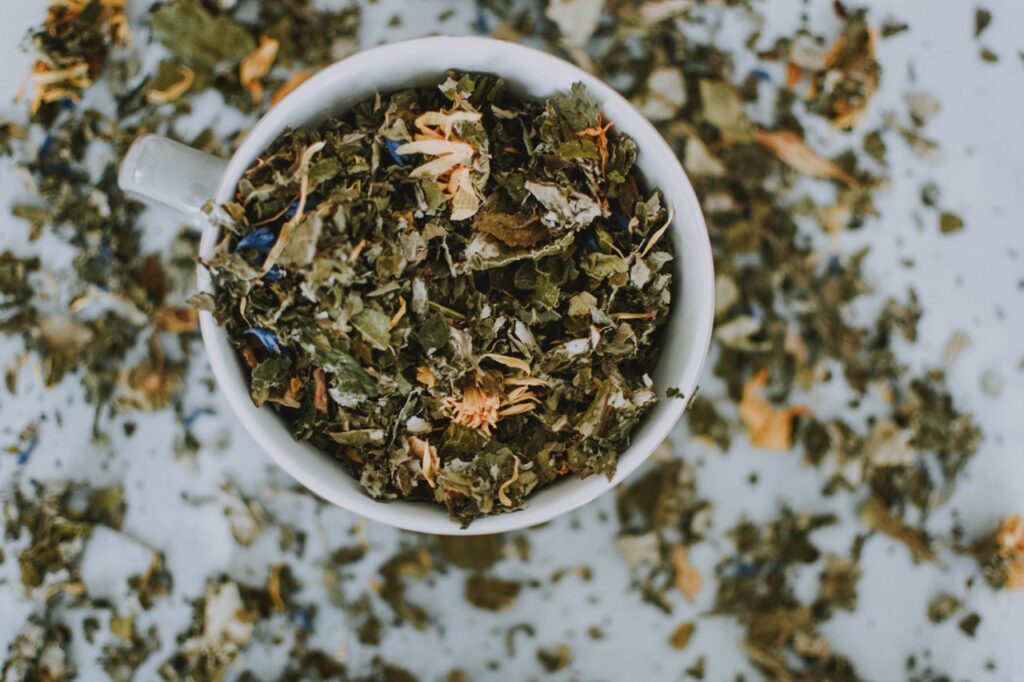Supplements and Herbs
Why Herbs Turn Brown
Herbs are a vivid complement to any cuisine, adding flavor and a hint of freshness. However, it can be disheartening when once-bright herbs begin to turn brown. But why is this happening? In this article, we will look at the causes of herb browning and how to avoid it.
The Science Behind Browning
Oxidation is one of the primary causes of plant browning. When exposed to air, the enzymes within the herbs react with oxygen, resulting in a chemical reaction that causes discoloration. This is comparable to what happens when an apple is chopped and becomes brown. The apple’s enzymes react with the oxygen in the air, causing it to oxidize and change color.
Furthermore, variables like as improper storage, high temperatures, and moisture can hasten the browning process. Herbs brown faster when stored in a warm or humid environment because the enzymes within them become more active. Herbs should be stored in a cool, dry place to slow the oxidation process.

Factors That Contribute to Browning
Aside from oxidation, the degradation of chlorophyll is another cause of herb browning. Chlorophyll is the pigment that gives plants, especially herbs, their green color. The chlorophyll in herbs degrades with time, disclosing additional pigments that give them a brownish hue. Factors such as exposure to light, heat, or moisture might hasten its disintegration.
Additionally, bruising or crushing the herbs might contribute to browning. When herbs are physically damaged, enzymes and chemicals are released, hastening the oxidation process. This is why it is critical to handle herbs with care and to avoid severe crushing or bruising.
How to Prevent Herbs from Turning Brown
It is critical to keep herbs carefully to prevent browning. Refrigerating fresh herbs in sealed containers is one of the most effective ways to store them. This reduces their exposure to air and slows the oxidation process. Alternatively, before putting the herbs in the refrigerator, wrap them in damp paper towels.
Using herbs as soon as possible after purchase can help keep them fresh and prevent browning. Herbs are at their most flavorful and colorful when they are newly gathered or purchased. The longer they sit, the more they are exposed to browning forces. For the best effects, utilize your herbs within a few days of acquiring them.

Techniques for Preserving Herb Freshness
Aside from appropriate storage, there are a few strategies that might help keep herbs fresh and avoid browning. Blanching is a common process that involves briefly soaking the herbs in boiling water, followed by a short plunge into freezing water. Blanching preserves the color and flavor of herbs by inhibiting the enzymes that cause browning.
Another method is to freeze the herbs. Herbs’ color and flavor can be preserved for a longer amount of time by freezing. To freeze herbs, properly wash and dry them before chopping or leaving them whole in airtight containers or freezer bags. Before freezing, label the containers with the herb name and date.
Common Mistakes to Avoid When Handling Herbs
There are a few frequent faults that might cause browning when handling herbs. One common blunder is washing the herbs too soon. Because moisture might hasten the browning process, it’s better to wash herbs shortly before using them. Another blunder is cutting herbs with dull knives. Dull knives can damage the herbs, causing enzymes to be released that induce browning. For clean cuts, always use sharp knives.
Browning can also be caused by cramming herbs in a container or wrapping them too tightly. When herbs are packed firmly together, ventilation is restricted and moisture levels rise, resulting in rapid browning. To avoid this, leave enough space for air circulation and avoid wrapping the herbs too tightly.

Browning in Different Types of Herbs
Different types of herbs may brown to varying degrees. Because of their high enzyme content, some herbs, such as basil and parsley, are more prone to browning. Other herbs, such as thyme and rosemary, are more resistant to browning because they contain less water. Understanding the browning tendencies of certain plants might help you take necessary preventative actions.
Browning in Dried Herbs
When compared to fresh herbs, dried herbs are less likely to turn brown. This is because the drying process removes a large portion of the water content, slowing the enzyme activity that produces browning. However, if dried herbs are exposed to light, heat, or moisture, they might discolor with time. To avoid this, keep dried herbs in sealed containers in a cold, dark location.

Culinary Uses for Browned Herbs
While browning is generally undesirable in fresh herbs, browned herbs have culinary applications. Browning can enhance the flavor profile of certain herbs, giving foods a richer, more nuanced flavor. Browning the herbs is accomplished by sautéing them in oil or butter until they deepen in color. This technique is widely employed to create a deep, savory flavor to meals such as sauces, soups, and stews.
Conclusion
In conclusion, figuring out how herbs turn brown shows an interesting interaction between biological processes and outside factors. Whether coming from oxidation, enzymatic browning, or poor handling, the shift from bright green to a less appealing brown color is a natural process affected by various factors.
Understanding this is more than just interesting for foodies; it gives us useful tips for keeping greens looking good and smelling good. To keep herbs fresh longer and keep them from turning brown, you might want to use them quickly, store them properly, and plan how you’ll prepare them.
What I want to say to people who are new to cooking is that they should use this information to improve their skills. Doing so will help you honor the delicate nature of herbs and are always preserved in your food. Making these changes will not only make your meals look better, but they will also make the whole cooking experience better.


